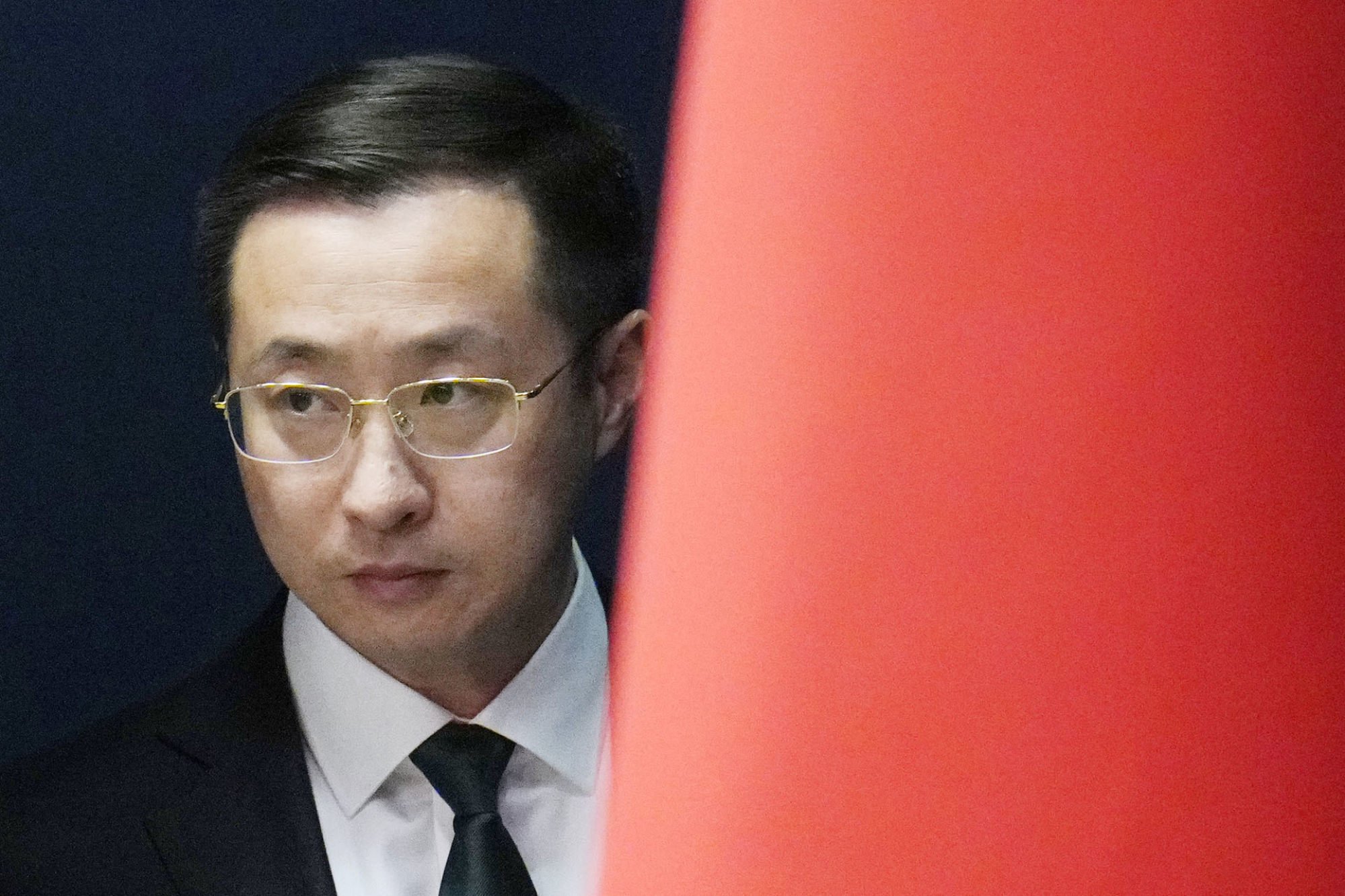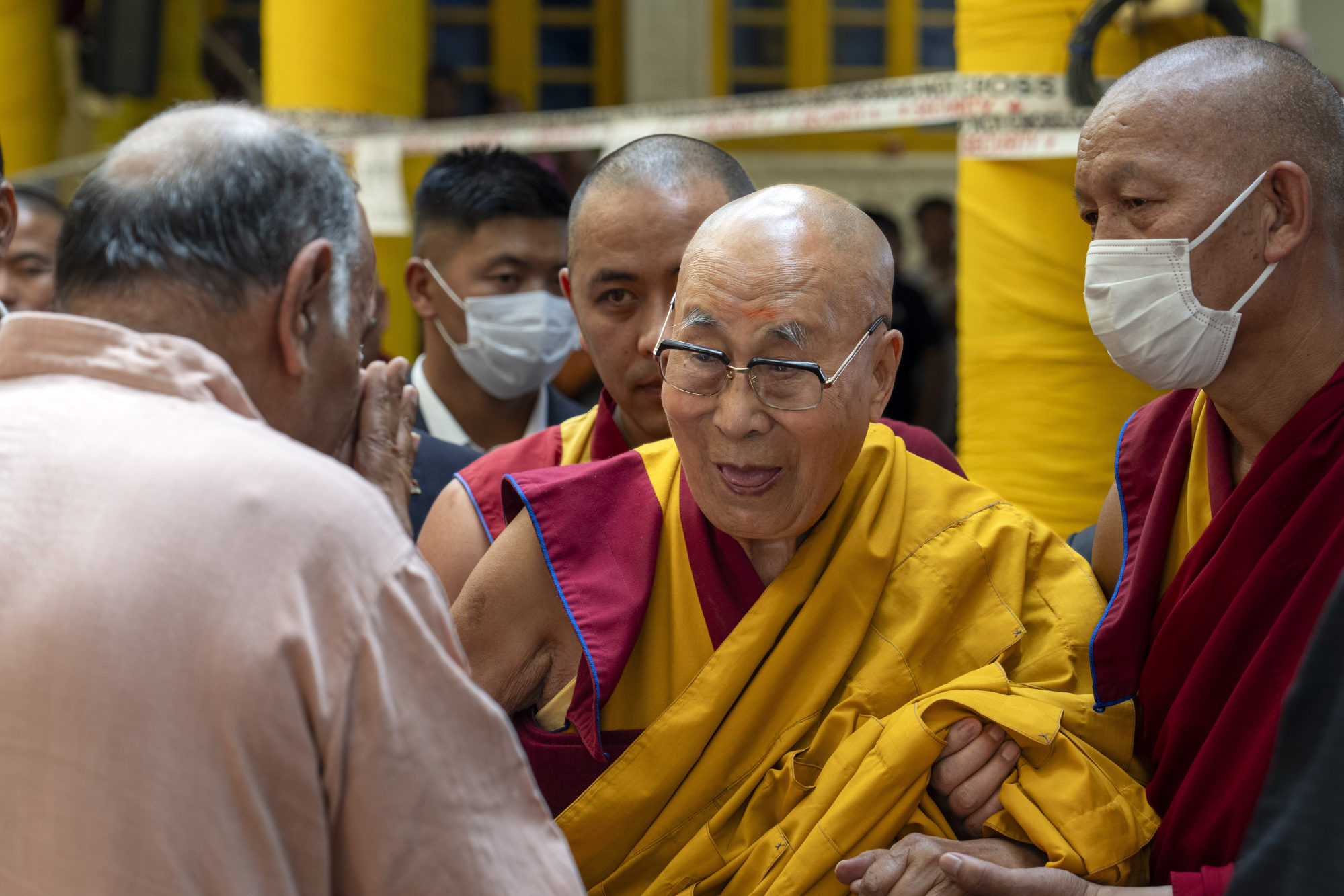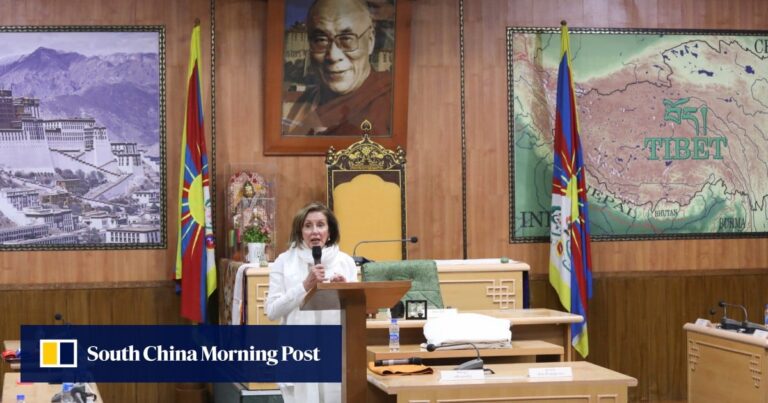Lin added that China had urged the United States to “avoid contact with the Dalai Lama group in any way and stop sending wrong messages to the world.”
Specifically, Lin warned U.S. President Joe Biden not to support the recently passed Congressional bill, the Promoting Resolution of the Tibet-China Dispute Act, which challenges China’s claim of control over Tibet.

“The United States should not sign the bill into law,” Lin said. “China will take resolute measures to firmly safeguard its sovereignty, security and development interests.”
A bipartisan delegation including former House Speaker Nancy Pelosi and Texas Republican Rep. Michael McCaul, chairman of the House Foreign Affairs Committee, is scheduled to meet with the exiled spiritual leader on Wednesday.
And in a move that could complicate President Biden’s recent efforts to stabilize ties with China, House Speaker Pelosi’s visit to Taiwan as speaker in 2022 prompted Beijing to suspend cooperation with Washington for several months when she addressed the Tibetan parliament in exile on Tuesday.
Video of Pelosi inside the building was circulated by Indian news channels, but it is unclear what she said in her speech.
Moreover, in what Beijing may see as a further provocation, a meeting between the delegation and the Dalai Lama on Wednesday is due to discuss Sino-Tibetan law.
“We are very much looking forward to meeting with His Holiness tomorrow and speaking with him about many things, including the bill that was passed by Congress which basically says that the United States stands with the Tibetan people,” McCaul said as the delegation arrived.
Asked whether Biden would sign the bill, McCaul asserted, “He will.”
China maintains that Tibet has been under Chinese central government rule for more than 700 years, but Tibet advocates say there was a period of de facto autonomy. The Dalai Lama has said he does not advocate political independence for Tibet, but that he does not support Beijing’s historical claims either.

China also accuses the Dalai Lama, who fled to India in 1959, of fomenting unrest in Tibet since the late 1980s. There have been no formal talks between the two sides since 2010.
The U.S. State Department considers the Tibet Autonomous Region and other Tibetan areas to be part of China, and although there are periodic visits by U.S. government officials and former presidents, a sitting U.S. president has not met with the Dalai Lama since former President Barack Obama met in 2016.
India, which has hosted spiritual leaders and their followers for decades, recognised Tibet as part of China in 2003. But since a deadly border clash in 2020 in the disputed region of Kashmir that left at least 20 Indian and four Chinese soldiers dead, the Indian government has abandoned respecting Chinese sentiments on the issue.
The US delegation’s trip to Dharamsala coincided with a visit to New Delhi by National Security Advisor Jake Sullivan and Deputy Secretary of State Kurt Campbell, where Sullivan met with Prime Minister Narendra Modi and Campbell met with other government officials.
Harsh Pant, professor of international relations at King’s College London, said the delegation’s meeting with the Dalai Lama would add further complexity and tension to already fraying US-China relations.
“This indicates that there is pressure from below on the Biden administration, which is trying to stabilise relations with China, to revisit the Tibet issue,” Pant said.
Pant said relations would “remain uneasy” because the broader US political establishment continues to place importance on issues such as Tibet and Taiwan “that were perhaps not considered that important in the big picture in the past.”
“I think China will take more notice of the sudden interest and sudden attempt by the US to revisit the Tibet issue,” Pant added.

